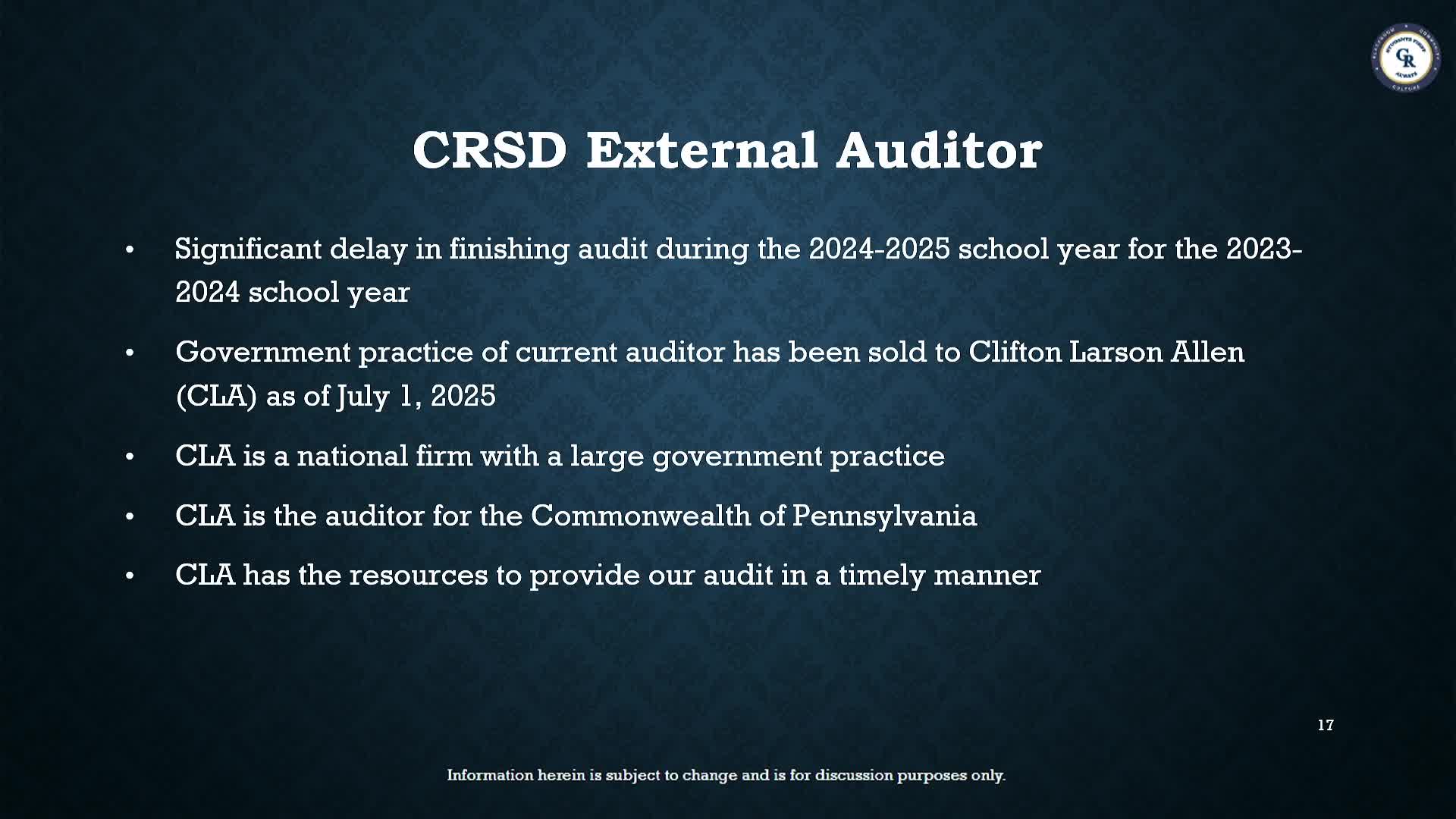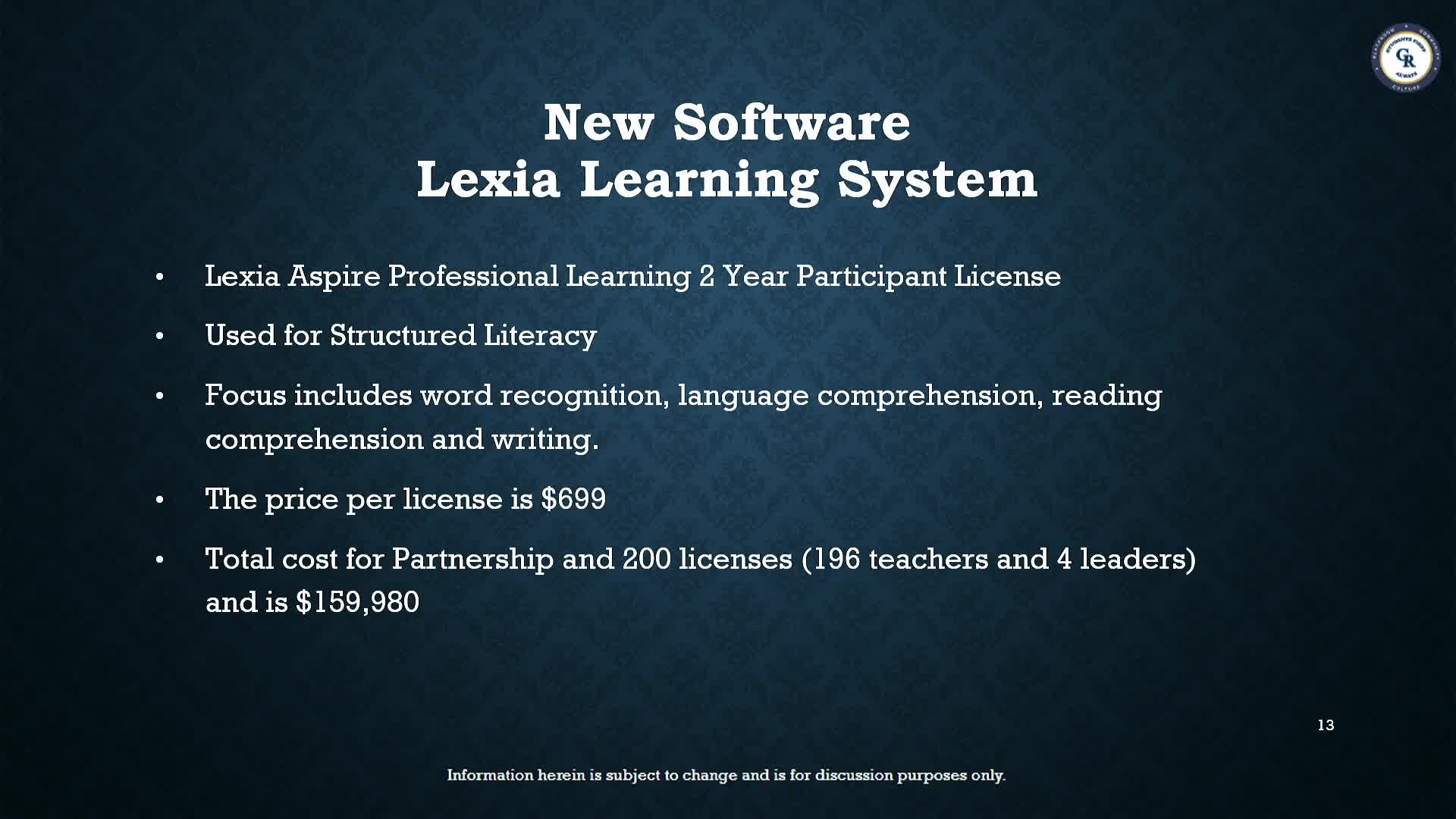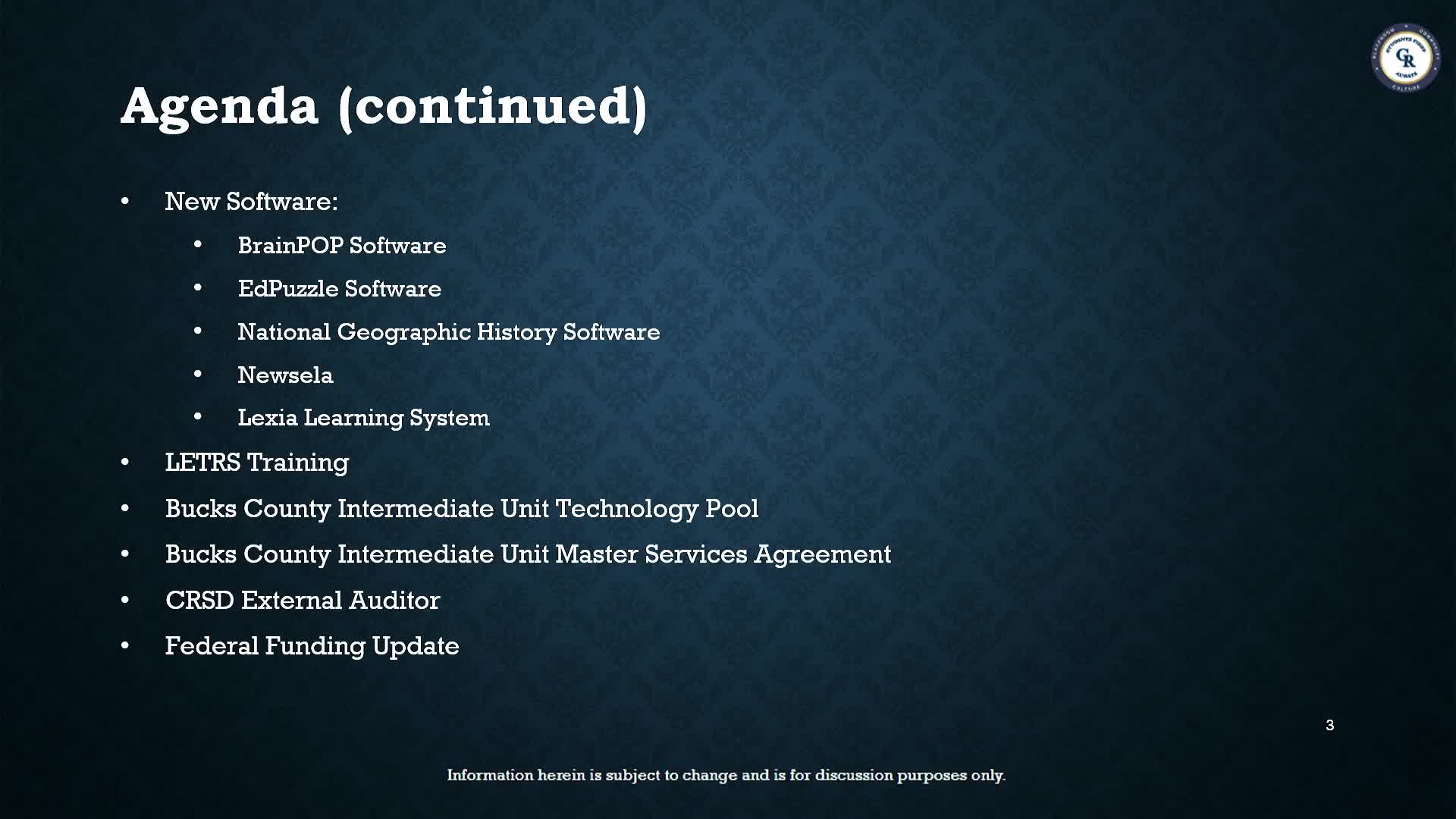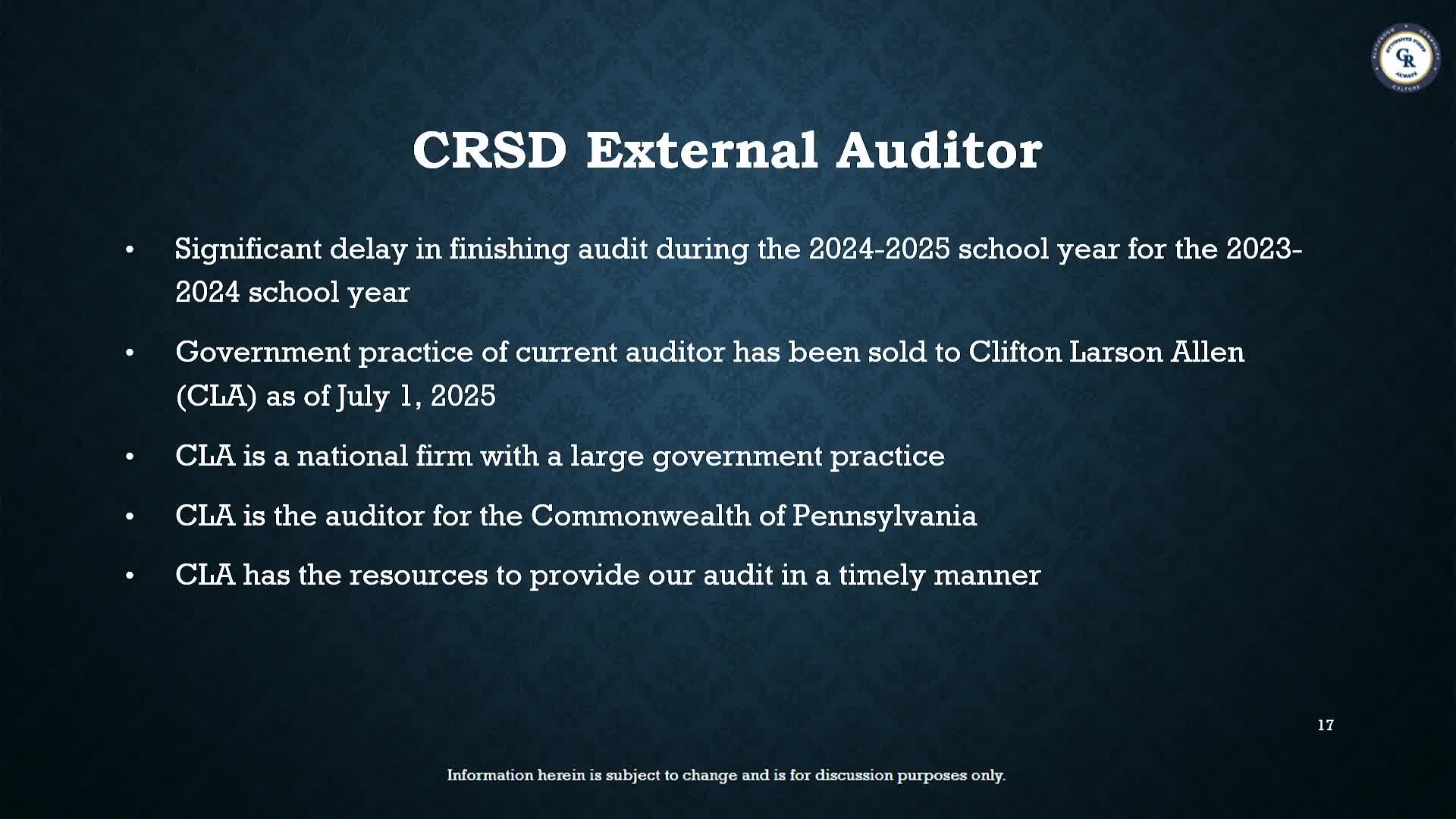Article not found
This article is no longer available. But don't worry—we've gathered other articles that discuss the same topic.

Council Rock SD says $245,000 in federal Title grants are under review; board to consider resolution asking lawmakers to reinstate funds

Council Rock SD budgets roughly $477,000 for LETRS structured‑literacy training required under Act 55

Council Rock SD reviews multiple education software renewals totaling hundreds of thousands of dollars

